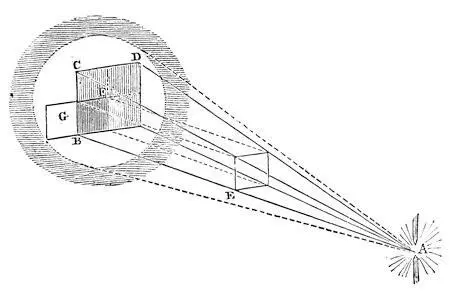Michael Faraday - On the various forces of nature and their relations to each other
Здесь есть возможность читать онлайн «Michael Faraday - On the various forces of nature and their relations to each other» — ознакомительный отрывок электронной книги совершенно бесплатно, а после прочтения отрывка купить полную версию. В некоторых случаях можно слушать аудио, скачать через торрент в формате fb2 и присутствует краткое содержание. Жанр: foreign_antique, foreign_prose, на английском языке. Описание произведения, (предисловие) а так же отзывы посетителей доступны на портале библиотеки ЛибКат.
- Название:On the various forces of nature and their relations to each other
- Автор:
- Жанр:
- Год:неизвестен
- ISBN:нет данных
- Рейтинг книги:3 / 5. Голосов: 1
-
Избранное:Добавить в избранное
- Отзывы:
-
Ваша оценка:
- 60
- 1
- 2
- 3
- 4
- 5
On the various forces of nature and their relations to each other: краткое содержание, описание и аннотация
Предлагаем к чтению аннотацию, описание, краткое содержание или предисловие (зависит от того, что написал сам автор книги «On the various forces of nature and their relations to each other»). Если вы не нашли необходимую информацию о книге — напишите в комментариях, мы постараемся отыскать её.
On the various forces of nature and their relations to each other — читать онлайн ознакомительный отрывок
Ниже представлен текст книги, разбитый по страницам. Система сохранения места последней прочитанной страницы, позволяет с удобством читать онлайн бесплатно книгу «On the various forces of nature and their relations to each other», без необходимости каждый раз заново искать на чём Вы остановились. Поставьте закладку, и сможете в любой момент перейти на страницу, на которой закончили чтение.
Интервал:
Закладка:
Here is another illustration, – I have hung a piece of gold-leaf in the upper part of this long glass vessel, and I have the means, by a little arrangement at the top, of letting the gold-leaf loose. Before we let it loose we will remove the air by means of an air pump, and while that is being done, let me shew you another experiment of the same kind. Take a penny-piece, or a half-crown, and a round piece of paper a trifle smaller in diameter than the coin, and try them, side by side, to see whether they fall at the same time [dropping them]. You see they do not – the penny-piece goes down first. But, now place this paper flat on the top of the coin, so that it shall not meet with any resistance from the air, and upon then dropping them you see they do both fall in the same time [exhibiting the effect]. I dare say, if I were to put this piece of gold-leaf, instead of the paper, on the coin, it would do as well. It is very difficult to lay the gold-leaf so flat that the air shall not get under it and lift it up in falling, and I am rather doubtful as to the success of this, because the gold-leaf is puckery; but will risk the experiment. There they go together! [letting them fall] and you see at once that they both reach the table at the same moment.
We have now pumped the air out of the vessel, and you will perceive that the gold-leaf will fall as quickly in this vacuum as the coin does in the air. I am now going to let it loose, and you must watch to see how rapidly it falls. There! [letting the gold loose] there it is, falling as gold should fall.
I am sorry to see our time for parting is drawing so near. As we proceed, I intend to write upon the board behind me certain words, so as to recall to your minds what we have already examined – and I put the word Forces as a heading; and I will then add, beneath, the names of the special forces according to the order in which we consider them: and although I fear that I have not sufficiently pointed out to you the more important circumstances connected with this force of Gravitation, especially the law which governs its attraction (for which, I think, I must take up a little time at our next meeting), still I will put that word on the board, and hope you will now remember that we have in some degree considered the force of gravitation – that force which causes all bodies to attract each other when they are at sensible distances apart, and tends to draw them together.
LECTURE II.
GRAVITATION – COHESION
Do me the favour to pay me as much attention as you did at our last meeting, and I shall not repent of that which I have proposed to undertake. It will be impossible for us to consider the Laws of Nature, and what they effect, unless we now and then give our sole attention, so as to obtain a clear idea upon the subject. Give me now that attention, and then, I trust, we shall not part without your knowing something about those Laws, and the manner in which they act. You recollect, upon the last occasion, I explained that all bodies attracted each other, and that this power we called gravitation . I told you that when we brought these two bodies [two equal sized ivory balls suspended by threads] near together, they attracted each other, and that we might suppose that the whole power of this attraction was exerted between their respective centres of gravity; and furthermore, you learned from me, that if, instead of a small ball, I took a larger one, like that [changing one of the balls for a much larger one], there was much more of this attraction exerted; or, if I made this ball larger and larger, until, if it were possible, it became as large as the Earth itself – or, I might take the Earth itself as the large ball – that then the attraction would become so powerful as to cause them to rush together in this manner [dropping the ivory ball]. You sit there upright, and I stand upright here , because we keep our centres of gravity properly balanced with respect to the earth; and I need not tell you that on the other side of this world the people are standing and moving about with their feet towards our feet, in a reversed position as compared with us, and all by means of this power of gravitation to the centre of the earth.
I must not, however, leave the subject of gravitation, without telling you something about its laws and regularity; and first, as regards its power with respect to the distance that bodies are apart. If I take one of these balls and place it within an inch of the other, they attract each other with a certain power. If I hold it at a greater distance off, they attract with less power; and if I hold it at a greater distance still, their attraction is still less. Now this fact is of the greatest consequence; for, knowing this law, philosophers have discovered most wonderful things. You know that there is a planet, Uranus, revolving round the sun with us, but eighteen hundred millions of miles off; and because there is another planet as far off as three thousand millions of miles, this law of attraction, or gravitation, still holds good – and philosophers actually discovered this latter planet, Neptune, by reason of the effects of its attraction at this overwhelming distance. Now I want you clearly to understand what this law is. They say (and they are right) that two bodies attract each other inversely as the square of the distance – a sad jumble of words until you understand them; but I think we shall soon comprehend what this law is, and what is the meaning of the “inverse square of the distance.”

Fig. 11.
I have here (fig. 11) a lamp A, shining most intensely upon this disc, B, C, D; and this light acts as a sun by which I can get a shadow from this little screen, B F (merely a square piece of card), which, as you know, when I place it close to the large screen, just shadows as much of it as is exactly equal to its own size. But now let me take this card E, which is equal to the other one in size, and place it midway between the lamp and the screen: now look at the size of the shadow B D – it is four times the original size. Here, then, comes the “inverse square of the distance.” This distance, A E, is one , and that distance, A B, is two ; but that size E being one , this size B D of shadow is four instead of two , which is the square of the distance; and, if I put the screen at one-third of the distance from the lamp, the shadow on the large screen would be nine times the size. Again, if I hold this screen here , at B F, a certain amount of light falls on it; and if I hold it nearer the lamp at E, more light shines upon it. And you see at once how much – exactly the quantity which I have shut off from the part of this screen, B D, now in shadow; moreover, you see that if I put a single screen here, at G, by the side of the shadow, it can only receive one-fourth of the proportion of light which is obstructed. That, then, is what is meant by the inverse of the square of the distance. This screen E is the brightest, because it is the nearest; and there is the whole secret of this curious expression, inversely as the square of the distance . Now, if you cannot perfectly recollect this when you go home, get a candle and throw a shadow of something – your profile, if you like – on the wall, and then recede or advance, and you will find that your shadow is exactly in proportion to the square of the distance you are off the wall; and then if you consider how much light shines on you at one distance, and how much at another, you get the inverse accordingly. So it is as regards the attraction of these two balls – they attract according to the square of the distance, inversely. I want you to try and remember these words, and then you will be able to go into all the calculations of astronomers as to the planets and other bodies, and tell why they move so fast, and why they go round the sun without falling into it, and be prepared to enter upon many other interesting inquiries of the like nature.
Читать дальшеИнтервал:
Закладка:
Похожие книги на «On the various forces of nature and their relations to each other»
Представляем Вашему вниманию похожие книги на «On the various forces of nature and their relations to each other» списком для выбора. Мы отобрали схожую по названию и смыслу литературу в надежде предоставить читателям больше вариантов отыскать новые, интересные, ещё непрочитанные произведения.
Обсуждение, отзывы о книге «On the various forces of nature and their relations to each other» и просто собственные мнения читателей. Оставьте ваши комментарии, напишите, что Вы думаете о произведении, его смысле или главных героях. Укажите что конкретно понравилось, а что нет, и почему Вы так считаете.












